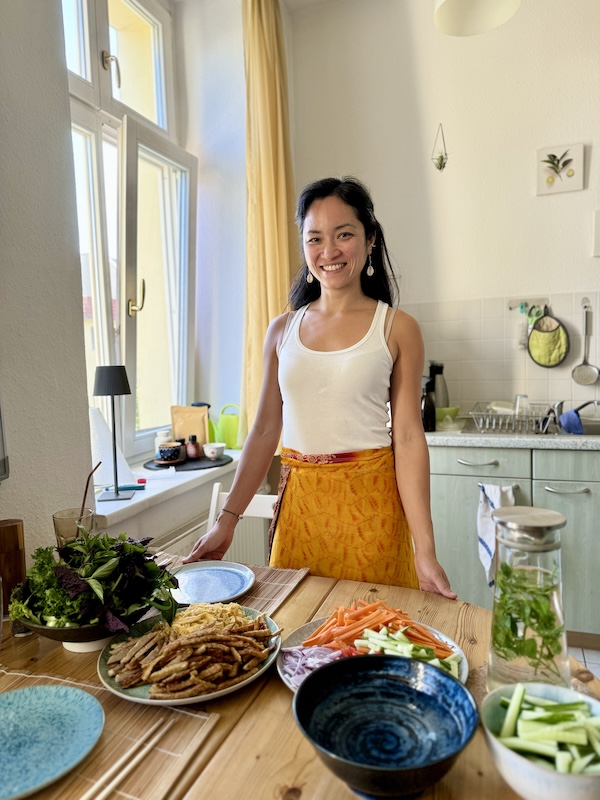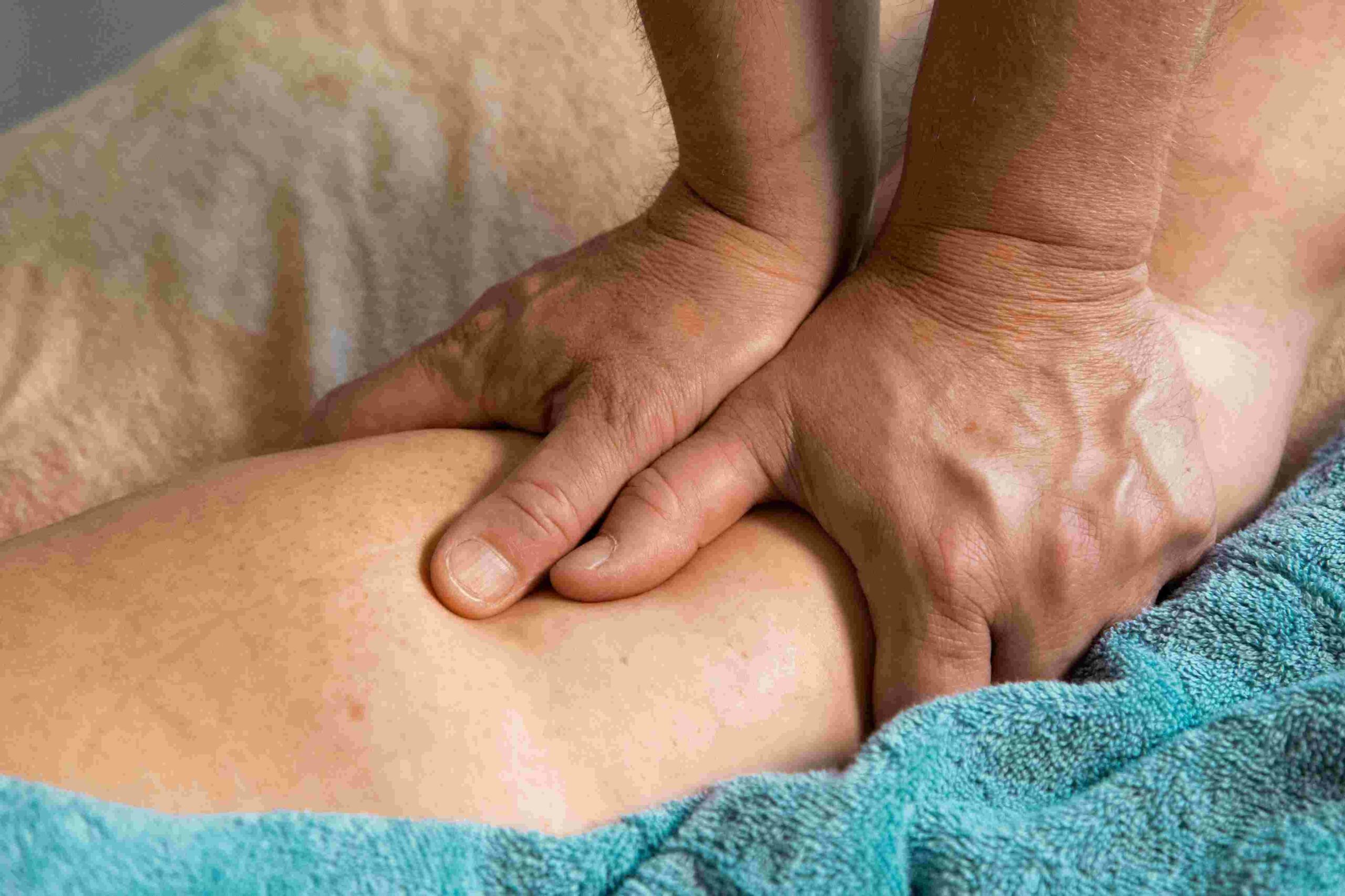
When the word “holiday” comes to mind, it often conjures up images of relaxation, exploration, and indulgence. For many, holidays are synonymous with savoring new cuisines, dining at renowned restaurants, and enjoying the luxury of having someone else do the cooking. However, while indulging in local delicacies and dining out is undoubtedly a delightful part of any vacation, maintaining a balance with healthy eating and occasionally preparing your own meals can significantly enhance your holiday experience.
Cooking your own meals while on holiday offers not just a break from the usual restaurant fare, but also an opportunity to immerse yourself in the local culture, maintain a healthier diet, and perhaps even discover a new passion for cooking. This article explores how you can embrace healthy eating and the joy of home cooking while on holiday, providing tips, benefits, and simple recipes to help you along the way.
The Joy of Cooking your own Food on Holidays
Cooking on holiday might initially seem counterintuitive—after all, isn’t the point of a vacation to take a break from everyday chores? However, cooking your own meals while traveling offers numerous benefits that can enrich your holiday experience in ways you might not expect.
- Control over ingredients: One of the most significant advantages of cooking your own meals is the control it gives you over the ingredients. When you dine out, you often have little to no control over the quality of the ingredients used. By cooking at home, you can choose fresh, nutritious, and locally sourced produce, ensuring that your meals are not only delicious but also healthy. Moreover, many local markets offer an abundance of fresh, seasonal produce that might not be available at home. This gives you the chance to experiment with new ingredients, learn about local food customs, and bring a taste of your travels back home.
- Healthier choices: Restaurant meals, while often delectable, are frequently laden with unhealthy fats, sugars, and salt. By cooking your own meals, you can tailor your dishes to be healthier by reducing these elements and incorporating more vegetables, lean proteins, and whole grains. This can be especially beneficial if you’re trying to maintain a specific diet or if you have dietary restrictions that can be challenging to accommodate while eating out.
- Personalized meals: Cooking your own food allows you to cater to your dietary preferences and restrictions, ensuring that everyone in your group enjoys their meals. Whether someone in your party is vegan, gluten-free, or simply picky, home-cooked meals can be customized to suit everyone’s tastes.
- Cost-effective: Travel can be expensive, and dining out for every meal can quickly add up. Cooking at home can be a more budget-friendly option, leaving you with extra funds to spend on other holiday experiences, such as tours, activities, or souvenirs.
- Immersive cultural experience Shopping at local markets, interacting with vendors, and preparing traditional dishes can offer a more immersive cultural experience than dining at tourist-oriented restaurants. It’s a way to connect with the local way of life, understand regional flavors, and perhaps even learn a few words in the local language as you navigate the markets.
- Bonding experience Cooking together can be a fun and rewarding bonding experience, whether you’re traveling with family, friends, or a significant other. It’s a chance to work together, share responsibilities, and enjoy the fruits of your labor as a group. Plus, cooking as a group often leads to shared laughter, creativity, and memories that outlast the vacation itself.

Tips for Healthy Eating on Holidays
Maintaining a healthy diet while on holiday doesn’t have to be a challenge. With a bit of planning and mindfulness, you can enjoy your travels without compromising your health. Here are some tips to help you strike the right balance:
- Plan ahead: Before you embark on your trip, take some time to research the local markets and grocery stores near your accommodation. Familiarize yourself with the types of foods available and make a list of easy, nutritious recipes you can prepare with minimal ingredients and equipment. Planning ahead will save you time and stress once you arrive, allowing you to focus on enjoying your holiday. For example, if you’re traveling to a Mediterranean destination, you might want to plan for salads, grilled vegetables, and fresh seafood—dishes that are not only healthy but also make the most of the local ingredients.
- Pack essentials: If you plan to cook during your holiday, consider bringing along some essential cooking tools. A small knife, a cutting board, and reusable storage containers can be incredibly useful for preparing and storing meals. Additionally, packing non-perishable healthy snacks like nuts, seeds, and dried fruits will ensure you have quick energy boosts on hand, reducing the temptation to grab unhealthy snacks. For more extended trips, you might also consider bringing a few spices or seasonings that you particularly enjoy. While most ingredients can be found locally, having a familiar spice blend can make cooking in a new environment feel a bit more like home.
- Shop locally: One of the joys of cooking on holiday is exploring the local markets. Shopping locally not only supports the community but also ensures that you get the freshest ingredients available. Local markets often offer an array of seasonal produce, artisanal products, and regional specialties that you might not find in supermarkets. When shopping, don’t be afraid to ask vendors for advice on how to prepare certain ingredients or for recommendations on what’s in season. Many vendors take pride in their products and will be happy to share their knowledge.
- Keep it simple: Holiday cooking doesn’t need to be complicated. Opt for simple, one-pot meals or dishes that require minimal preparation and cooking time. Grilled vegetables, whole grains, and salads are easy to prepare, nutritious, and require little more than a knife, a pan, and a stove. Consider dishes that can be prepared in bulk and enjoyed over several meals. For example, a large salad or a pot of vegetable stew can be made once and eaten over a couple of days, freeing up more time for sightseeing and relaxation.
- Stay hydrated: Traveling, especially in warmer climates, can lead to dehydration, which in turn can cause fatigue and overeating. Carry a reusable water bottle and drink plenty of water throughout the day. Staying hydrated will help you feel more energetic and less likely to indulge in unnecessary snacking. If you’re in a location where the tap water isn’t safe to drink, consider purchasing large bottles of water or a water filtration system to ensure you always have access to clean, safe drinking water.
- Balance indulgence with nutrition: Holidays are a time to indulge, but it’s essential to balance these indulgences with nutritious choices. If you have a rich, heavy meal for lunch, opt for a lighter, home-cooked dinner. By alternating between indulgent meals and healthier options, you can enjoy the local cuisine without overloading on calories and unhealthy ingredients. One way to maintain this balance is by setting a rule for yourself, such as indulging in one or two local treats per day while keeping the rest of your meals healthy and balanced. This way, you can enjoy the best of both worlds without feeling deprived.
- Practice mindful eating: Mindful eating is about savoring each bite and paying attention to your hunger and fullness cues. By eating slowly and focusing on the flavors and textures of your food, you can enhance your dining experience and prevent overeating. Mindful eating also encourages you to be more aware of the quality of the food you’re consuming. By focusing on fresh, high-quality ingredients, you’re more likely to make healthier choices and enjoy your meals more fully.
- Keep healthy snacks on hand: Having healthy snacks available can help you avoid the temptation to reach for unhealthy options. Fresh fruits, vegetables, nuts, or homemade energy balls are all great choices for snacks that are both nutritious and satisfying. When traveling, it’s easy to fall into the trap of snacking on processed foods or sugary treats. By keeping a stash of healthy snacks in your bag or accommodation, you’ll be better equipped to resist these temptations and stay on track with your healthy eating goals.

Cooking Strategies for Different Types of Holidays
Each holiday can bring different cooking needs. Whether you’re vacationing in the city, at the beach, or in nature, you can develop strategies on how to plan and prepare your meals.
- City Holidays: In city vacations, you may often encounter smaller kitchens. However, the rich markets and grocery stores in the city allow you to easily access a variety of fresh ingredients. Simple stir-fries or fresh salads that require minimal preparation are ideal for city holidays.
- Beach Holidays: In coastal areas, seafood is often abundant and fresh. You can prepare simple yet delicious meals with fresh seafood from local fish markets. For example, fish marinated in lemon and olive oil can be easily grilled.
- Mountain Holidays: In mountain holidays, due to colder weather, nutritious and hearty meals may be preferred. One-pot dishes, soups, and stews offer practical and satisfying options for these kinds of holidays.

Healthy Snacks During Travel
Eating healthy during long trips is crucial for maintaining your energy levels. Healthy snacks that you can consume while traveling should be nutritious and practical.
- Nuts and Seeds: Rich in protein and healthy fats, nuts and seeds are perfect snacks for long trips. They also keep you full and provide energy.
- Fresh Fruits: Fresh fruits like oranges, apples, and grapes are easy-to-carry snacks with high water content. Additionally, their rich vitamin and mineral content enhances their nutritional value.
- Energy balls: Energy balls are made of whole foods e.g. dates, cashews, and berries, that provide you with nutrients, energy, and fibers and not only empty calories like many other processed bars.

Simple Recipes for Holiday Cooking
Cooking on holiday doesn’t have to be time-consuming or complicated. Here are a few simple, healthy recipes that you can prepare with minimal ingredients and equipment:
Fresh Summer Salad
- Ingredients: Mixed greens, cherry tomatoes, cucumber, avocado, grilled tofu, olive oil, lemon juice, salt, and pepper.
- Instructions: Combine the mixed greens, cherry tomatoes, and cucumber in a bowl. Add slices of avocado and grilled tofu. Drizzle with olive oil and lemon juice, and season with salt and pepper to taste. Serve immediately. This salad is perfect for a light lunch or dinner, especially in warm climates. The combination of fresh vegetables, healthy fats from the avocado, and protein from the tofu makes it a balanced and satisfying meal.
One-Pan Roasted Veggies and Fish
- Ingredients: Assorted vegetables (zucchini, bell peppers, carrots), olive oil, garlic, salt, pepper, and fresh fish fillets.
- Instructions: Preheat the oven to 180°C. Toss the chopped vegetables with olive oil, minced garlic, salt, and pepper. Spread the vegetables on a baking sheet and roast in the oven for about 20 minutes or until tender. Place the fish fillets on top of the vegetables during the last 10 minutes of cooking. Serve hot. This dish is incredibly versatile and can be adapted to whatever vegetables and fish are available locally. It’s a simple, nutritious meal that requires minimal cleanup, making it ideal for holiday cooking.
Mediterranean Quinoa Bowl
- Ingredients: Quinoa, cherry tomatoes, cucumber, olives, smoked tofu, red onion, olive oil, lemon juice, salt, and pepper.
- Instructions: Cook the quinoa according to package instructions and let it cool. In a large bowl, combine the cooked quinoa with chopped cherry tomatoes, diced cucumber, sliced olives, tofu cubes, and thinly sliced red onion. Drizzle with olive oil and lemon juice, then season with salt and pepper. Toss everything together and serve.
This Mediterranean-inspired quinoa bowl is packed with fresh vegetables and healthy fats, making it a nutritious and satisfying meal. It’s perfect for lunch or a light dinner and can be easily packed for a picnic or day trip.

Conclusion
Healthy eating and home cooking on holidays doesn’t mean sacrificing the pleasure of trying new foods or indulging in local cuisine. By balancing restaurant meals with simple, home-cooked dishes, you can enjoy the best of both worlds—savoring the local flavors while maintaining a nutritious diet.
Cooking your own meals while traveling offers numerous benefits, from controlling the quality of ingredients to saving money and immersing yourself in the local culture. With a bit of planning and a few essential tools, you can easily incorporate healthy eating into your holiday routine without feeling overwhelmed.
Remember, the key to a successful holiday cooking experience is to keep it simple, use fresh, local ingredients, and enjoy the process. Whether you’re preparing a quick salad, a hearty stir-fry, or a refreshing fruit parfait, the effort you put into cooking will pay off in the form of delicious, healthy meals that enhance your holiday experience. So, the next time you pack your bags for a vacation, consider adding a few cooking essentials to your list—you might just discover that cooking on holiday can be one of the most enjoyable parts of your trip.
Subscribe to our newsletter to stay updated with insightful tips or join us on social media.
The Connection Between Psychology and Nutrition
Introduction The connection between psychology...
Physiotherapy and Nutrition in Musculoskeletal Diseases
Physiotherapy plays a critical role in managing...
Small Intestinal Bacterial Overgrowth (SIBO)
Introduction Small Intestinal Bacterial...
Why the Gut is Called the “Second Brain”
The human gut is often referred to as the...
Autoimmune Diseases
Autoimmune diseases occur when the immune...
Infertility and the Role of Nutrition
Infertility is a growing concern for many...
Nutrition with PCOS
Introduction Polycystic Ovary Syndrome...
Understanding Endometriosis
Endometriosis is a chronic condition where...
Lipedema
What is Lipedema? Lipedema is a chronic medical...










